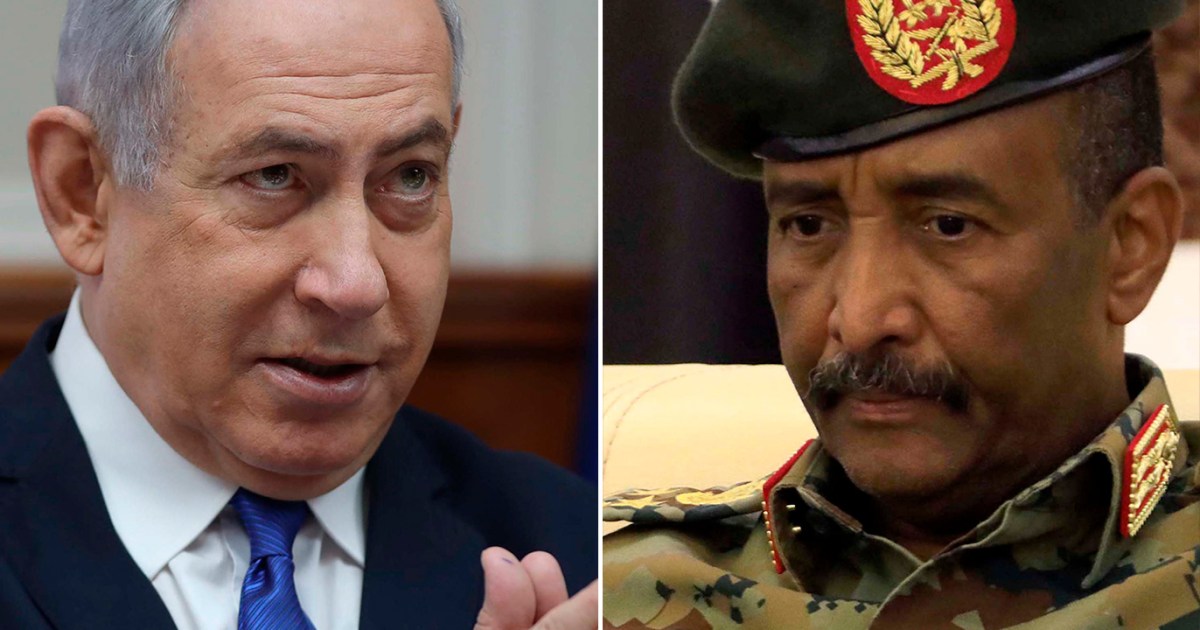Today, the Sudanese Ministry of Foreign Affairs denied the statements of its spokesperson about Sudan’s endeavor to establish relations with Israel, hours after the spokesman said that contacts are in place between Khartoum and Tel Aviv in order to normalize relations. The spokesman praised the agreement to normalize relations between the UAE and Israel. Aviv with statements of the official spokesman for the Sudanese Foreign Ministry.
The Sudanese Foreign Minister in charge, Omar Qamar El Din, said in a press statement that the ministry "received with astonishment the statements of Ambassador Haider Badawi Sadiq, the ministry’s spokesman, about Sudan’s endeavor to establish relations with Israel. These statements created an ambiguous situation that needs clarification."
The Sudanese Foreign Ministry stressed that "the issue of relations with Israel was not discussed in the Ministry of Foreign Affairs in any way, and Ambassador Haidar Badawi was not assigned to make any statements in this regard."
The Sudanese Foreign Ministry spokesman said in a press conference today that contacts exist between his country and Israel in order to normalize relations even before the announcement of the normalization agreement between Abu Dhabi and Tel Aviv, and described the Emirati step with courage and boldness.
Sadiq added that if a peace agreement is signed, Sudan will be the most important country with which Israel will normalize, even more important than Egypt.
# Sudan announces its intention to normalize relations with Israel
Badawi said that the meeting of the President of the Sovereign Council, "Abdel-Fattah Al-Burhan," with Israeli Prime Minister, "Benjamin Netanyahu," weeks ago, was a "bold step that opened the door to contacts that could take place between the two parties." https://t.co/siduMPnfoY
- ANADOLU AGENCY (AR) (@aa_arabic) August 18, 2020
Gains for all
The Sudanese Foreign Ministry spokesman said that his country aspires to a normalization based on benefits for all, including Saudi Arabia, and stressed that Sudan’s decision is not in accordance with the UAE’s decision to normalize relations with Israel.
Al-Jazeera correspondent in Khartoum, Ahmed Al-Raheid, said that no political and popular reactions have yet been received to the statements of the Sudanese Foreign Ministry spokesman, but the National Umma Party - one of the most prominent parties participating in power - previously expressed its rejection of normalization and the meeting held in Uganda in February. Last February, the head of the Sudanese Sovereignty Council, Abdel Fattah al-Burhan, and Israeli Prime Minister Benjamin Netanyahu.
The General Secretariat of the National Umma Party said in a statement today that "any relationship with Israel in light of the failure to recover the occupied Arab lands in an acceptable settlement and commitment to international legitimacy decisions is unjustified."
Israeli welcome
In return, the Israeli Prime Minister welcomed the statements of the Sudanese Foreign Ministry spokesman, saying that they "reflect the courageous decision taken by the head of the Sudanese Sovereignty Council, which called for work to strengthen relations between the two countries."
Netanyahu added that Israel, Sudan and the entire region would profit from the peace agreement, and that it would build a better future for all the peoples of the region, stressing that Israel would do everything necessary to implement this vision on the ground.
The Israeli newspaper Yediot Aharonot said today that most of the contacts between Israel and Sudan in recent months have made progress, especially with regard to flights over Sudanese lands, but the journalist added that the estimates in Israel indicate that the Sudanese will not be in a hurry to sign a public agreement with Tal Tel.
Yesterday, the head of the Israeli Mossad, Yossi Cohen, told Bloomberg that it is likely that Sudan and Bahrain will be the first two countries to follow the example of the Emirates in normalization, and that Gulf countries such as Oman and Saudi Arabia will join them, in addition to Morocco.

